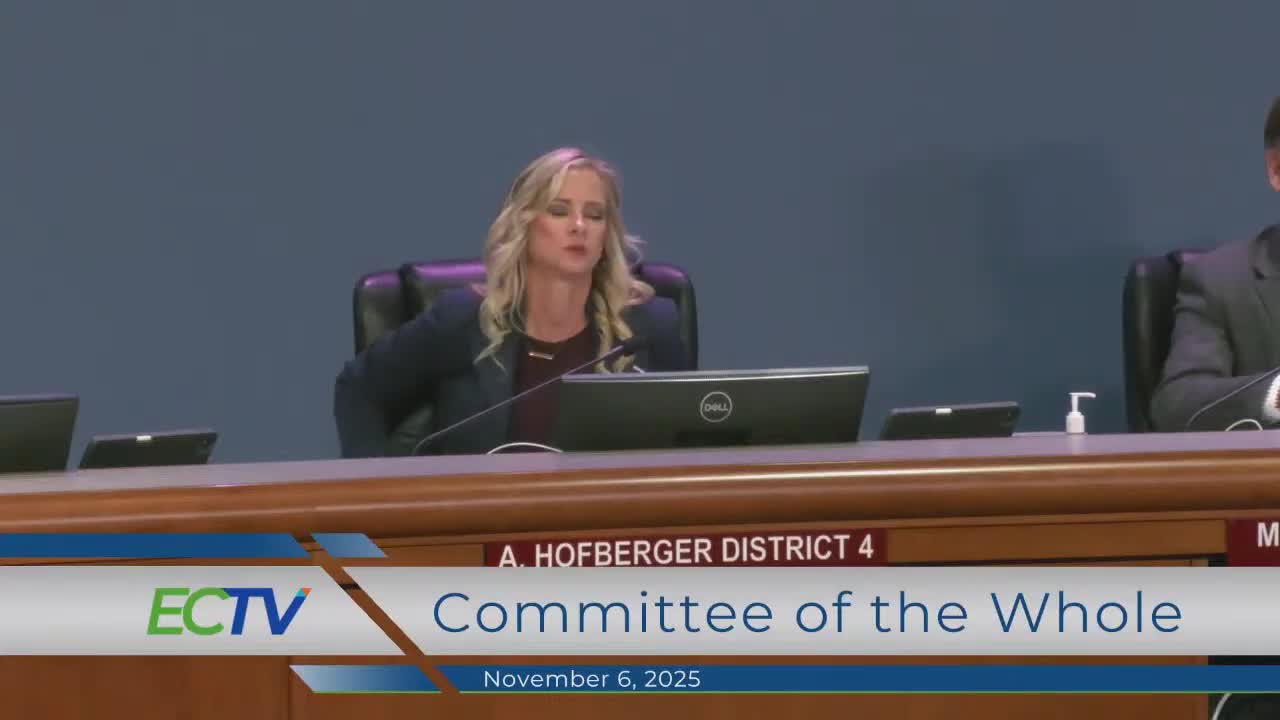Local educators and employers push expanded apprenticeships, paid internships and trades training; Pensacola State outlines workforce programs
Get AI-powered insights, summaries, and transcripts
Subscribe
Summary
Education and economic development leaders told the Escambia County Board on Nov. 6 that expanding paid internships, apprenticeships and hands‑on trades training — and removing barriers like transportation, childcare and upfront equipment costs — would connect more local residents to jobs.
Representatives from Pensacola State College, the University of West Florida, Escambia County Public Schools, Escambia County Children’s Trust and Florida West told the Escambia County Board on Nov. 6 that expanding paid internships, apprenticeships and hands‑on career and technical education would better connect residents to local jobs.
Dr. Meadows of Pensacola State College described program growth and workforce investments at PSC, including a nationally ranked nursing program, the college’s cybersecurity bachelor’s program, new respiratory care coursework and two National Science Foundation awards for advanced manufacturing workforce development. Dr. Meadows said PSC’s total annual economic impact in Escambia County is roughly $529 million and noted that roughly 20% of students are military-affiliated; commissioners asked PSC to quantify GI Bill and tuition‑assistance inflows so the county can prioritize federal advocacy.
Lindsay Walk of the University of West Florida highlighted UWF’s talent catalyst program that places students in part‑time roles that often convert to full‑time jobs, cybersecurity trainings, and the need for funding to subsidize internships for small businesses and nonprofits. “Exposure doesn’t pay the bills,” Walk said when explaining why employers and small organizations may be unable to host unpaid interns.
Steve Harrell, director of workforce education for Escambia County Public Schools, outlined K‑12 career and technical pathways: 11 middle‑school career academies, 43 high‑school academies, 27 George Stone Technical College programs, and last year’s 13,492 industry certifications districtwide. Harrell described expanded welding, automotive and a planned HVAC program at Escambia High School; he said heavy equipment and trainer purchases will likely require several hundred thousand dollars, targeting a program start next August if funding and facility work proceed.
Lindsay Cannon, executive director of the Escambia County Children’s Trust, said the trust has more than 40 active contracts and is preparing a new RFP cycle in January that could be used to underwrite year‑round youth employment and wraparound services that support school‑to‑work transitions. She said the trust cannot fund school‑district payroll but can fund nonprofit partners that deliver workforce supports and summer‑to‑year‑round transitions.
Chris Platai of Florida West said employers consistently ask for mechatronics, industrial maintenance, machining, composites, avionics and supervisory/leadership training; he urged the county to expand apprenticeships and to clarify pathways that let students stack certifications into associate and bachelor’s degrees. "Apprenticeships are where careers are made," Platai said.
Commissioners and presenters agreed on several priorities: expand paid internships and employer engagement (including funding mechanisms for small employers), grow apprenticeships tied to local industry, scale up hands‑on CTE programs in high schools (HVAC, welding, automotive) and coordinate transportation and childcare supports so trainees can attend classes and work. The Escambia County Children’s Trust and the school district said they are open to partnership discussions and to incorporating provider feedback into the trust’s January RFP cycle. Presenters requested the county help amplify employer outreach and consider seed funding or matching to mobilize training equipment purchases and apprenticeship wage subsidies.
No formal board motions or ordinances were adopted on workforce items during the Nov. 6 meeting; presenters were invited to continue collaboration and return with further details.
